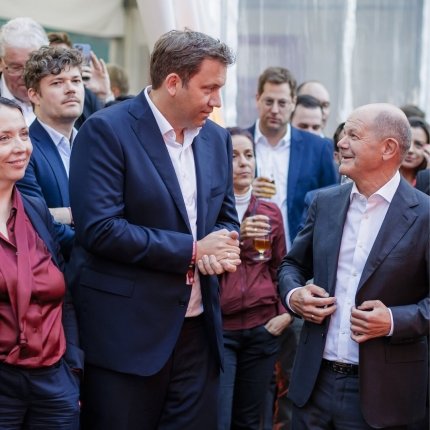They want to exclude the current German leader Olaf Scholz from the electoral list in next year's national elections. Such calls began to be heard in the Social Democratic Party of Germany (SPD).
Points of attention
- Sociological research shows that Scholz's support from the German people is very low.
- Internal conflicts in SPD regarding the candidacy of Scholz indicate the lack of unity in the party.
- The first protests against Scholz may take place during the upcoming elections in Brandenburg.
Scholz came under fire from his own party
Conflicts in the political power of the current German leader began after the publication of a new poll by the sociological institute Forschungsgruppe Wahlen.
As it turned out, no German chancellor in the last 34 years had such a low approval rating.
77% consider Scholz a "weak leader" who cannot get his way.

That is why the SPD began to make suggestions that in the next elections he could be replaced by another, more popular candidate — for example, Defense Minister Boris Pistorius or Anke Rehlinger, Premier of the Saarland.
In the GOP, a lot of people are pointing to how (US President) Joe Biden made room for Kamala Harris and asking if that could set a precedent for us... Looking at his polling performance, you can see why. — said one of the German politicians.
Scholz may soon feel the loss of support from his associates
The first public speeches against Scholz as a candidate in the elections may begin as early as September 22 — during the elections in Brandenburg.
What is important to understand is the land that SPD has ruled since reunification.
In recent days, the party has been gaining momentum in the polls, closing the gap on the Alternative for Germany, which is in first place. But if something goes wrong on voting day and she loses power, it will be extremely bad news for Scholz.
According to supporters of Scholz, the charge of weak leadership is unfair.
For example, German MP Jens Zimmermann predicted that the current chancellor will lead the party to the national elections next year and win, "because his opponent will be Friedrich Merz."




